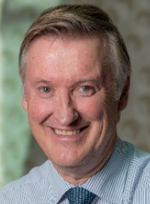Professor Roderick Clifton-Bligh

Affiliation: Head, Department of Endocrinology, Royal North Shore Hospital, St Leonards, Sydney
And Professor in Medicine, University of Sydney
Roderick Clifton-Bligh is Head of the Department of Endocrinology at Royal North Shore Hospital, and conjoint professor in Medicine at the University of Sydney. He trained in medicine at the University of Sydney before completing a PhD in the genetics of thyroid disorders at the University of Cambridge in 1998. He returned to Sydney to complete his FRACP in 2004 and was then appointed as Staff Specialist in Endocrinology at Royal North Shore Hospital. He is now senior staff specialist and Head of Department of Endocrinology at Royal North Shore Hospital and Professor (conjoint) at the University of Sydney. He heads the Cancer Genetics Laboratory at the Kolling Institute and direct twin research programs in Endocrine Neoplasia (Phaeochromocytoma/ paraganglioma syndromes, Thyroid Cancer, Adrenal Cancer, Pituitary Tumours) and Metabolic Bone Disease (calcium-sensing receptor function in health and disease, and FGF-23 regulation of vitamin D metabolism). He was admitted to Fellowship of Faculty of Science (The Royal College of Pathologists of Australia) in 2011. He has co-authored 198 publications in peer-reviewed journals with >6,000 citations. He has supervised 14 completed PhDs, including both basic science and clinical focused work; his students included the ESA Young Investigators in 2005, 2007, and 2010 and the ESA Bryan Hudson awardee in 2008. His work has been recognized by awards from NSW Cancer Institute (2013), Asia-Oceania Thyroid Association (2014) and the Endocrine Society of Australia Outstanding Clinical Practitioner Award (2021). His service to the Endocrine Society of Australia includes membership of the POC for its ASM in 2004-2006 and 2013-2015; and the ESA representative to the Specialist Advisory Committee in Endocrinology at the Royal Australasian College of Physicians from 2004-2012 (as chair, 2010-2012). He is passionate about scientific advancement in endocrinology through mentoring and training young physicians and scientists.











